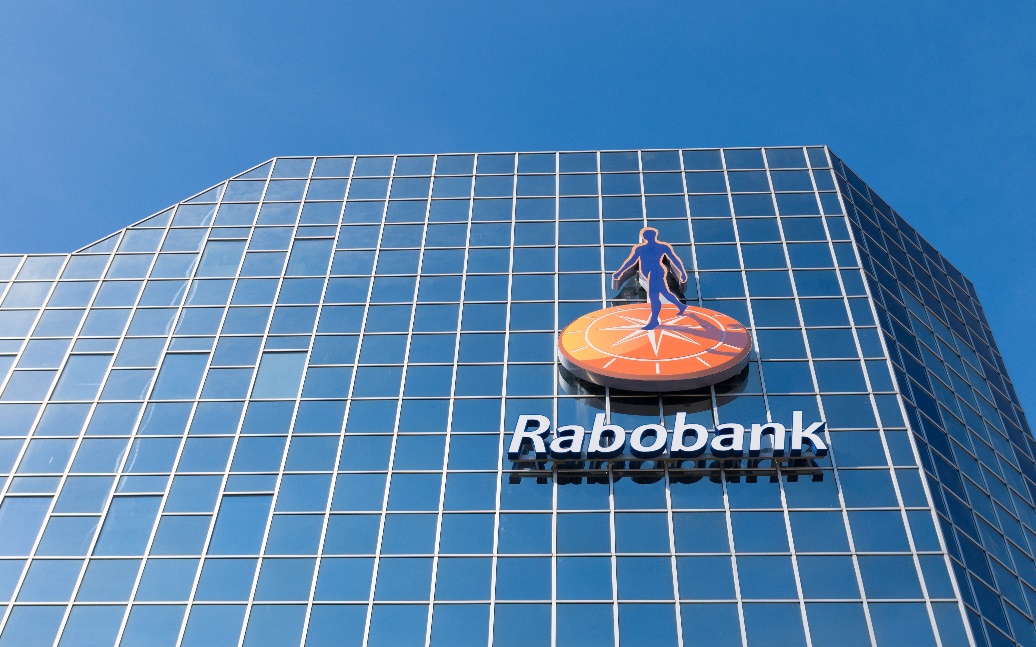Rabobank is being prosecuted by the Openbaar Ministerie 's Office (OM) for suspected, structural violations of the Money Laundering and Terrorist Financing (Prevention) Act. The prosecution announced Wednesday that the bank failed to conduct customer due diligence and report suspicious transactions between 2016 and 2021. The criminal case follows an earlier investigation launched in 2022 after De Nederlandsche Bank (DNB) found serious deficiencies in money laundering controls at Rabobank in 2021.

The investigation focuses on a five-year period during which the bank allegedly "structurally" broke the law, according to the prosecution. Rabobank has tried to reach a settlement with the prosecutor, but those talks came to nothing. That is why the case is now going to court.
The charges do not come as a surprise. Earlier, ING and ABN Amro were also fined millions for similar offenses (775 million and 480 million euros, respectively). These cases led banks to invest heavily in improving their anti-money laundering processes.
At the same time, there is growing concern about the impact of these measures on ordinary, bona fide customers. Banks are trying to comply at all costs, which has led to thousands of customers losing their bank accounts - often without clear suspicion of involvement in money laundering or terrorist financing. In 2022, for example, Rabobank reported that it had terminated more than 10,000 customers every month in just a few months. Not necessarily because of crimes, but because the bank "did not feel comfortable" with certain customer relationships, in part because of strict regulations.
According to critics, such as Simon Lelieveldt, president of Human Rights in Finance, the fear of fines and prosecution is leading banks to increasingly violate privacy laws. "If the Autoriteit Persoonsgegevens (AP) were as well-staffed as De Nederlandsche Bank (DNB), they would have long since taken banks to task for illegal practices," Lelieveldt said.
He advocates a stronger role for the AP in punishing privacy violations by banks. Only then, he says, will there be a counterweight to the current one-sided legal pressure from the prosecution. "As long as this fear of prosecution remains, banks will continue to violate the AVG," he argues.
The prosecution emphasizes that violation of the Wwft poses serious social and economic risks because money laundering and terrorist financing undermine the integrity of the financial system. Banks are therefore required by law to identify and report suspicious transactions.
Yet the question arises as to whether the current approach is effective. Since the fines for ING and ABN Amro, banks have invested millions in their control systems. But does that actually lead to the detection of more criminals? Or mainly to frustration among innocent customers?
De Nederlandsche Bank , meanwhile, says it is moving toward a more "risk-based" approach, focusing on customers with demonstrably higher risks. The question, however, is whether banks dare to use that space as long as the threat of criminal prosecution hangs over them.
According to Jurjan Geertsma, partner at JahaeRaymakers advocaten, it is questionable exactly what goal the prosecution has in mind with this prosecution, especially given the politically desired easing of the burden on banks. Possibly the idea of "equal banks, equal blows" plays a role here.
Still, Geertsma thinks it is right - and even "tough" - that Rabobank apparently does not want to bend over backwards for a settlement at all costs, but wants to take the matter to court for review. "After all, it is up to the judge to find the balance and that is good for practice. "
Exactly how the case against Rabobank will unfold is still uncertain. What is clear, however, is that the tension between fighting financial crime and protecting customer rights is growing. The coming time will have to show whether legislation and regulations will eventually lead to a more balanced and effective approach to money laundering risks in the Netherlands.
Learn more about anti-money laundering rules and limits? During the Risk & Compliance Annual Conference 2025 on June 5, Jurjan Geertsma, among others, will elaborate on this topic. His contribution will focus on the Anti Money Laundering Regulation, which creates new frameworks for the money laundering approach and the interpretation of the gatekeeper function. The role of public partners such as the FIOD and the growing importance of public-private cooperation are also discussed.


